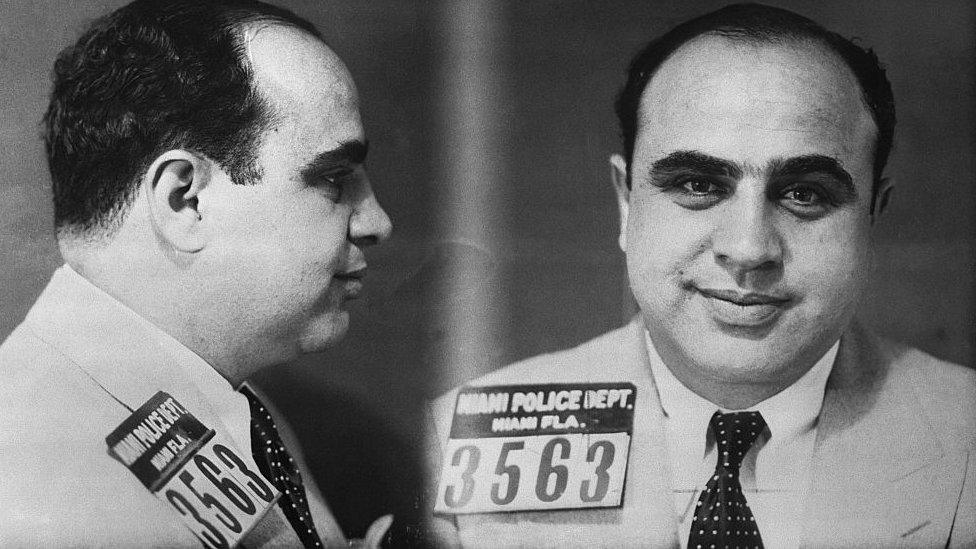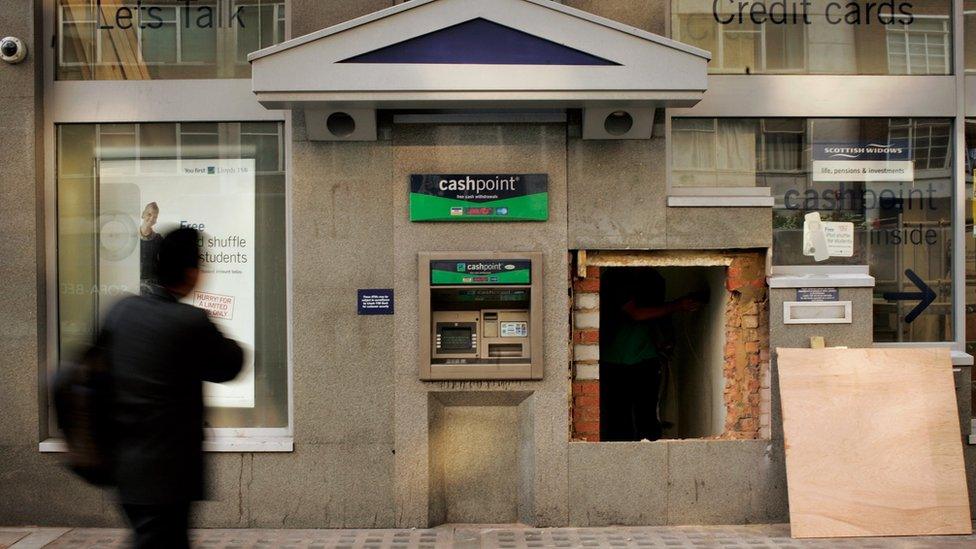'Money mules': Rising numbers are in middle age
- Published

Middle-aged people are increasingly being lured into becoming "money mules" and their bank accounts used to launder proceeds of crime, a report suggests.
More than 40,000 cases which "bore the hallmarks" of money mule activity were reported to UK fraud prevention service Cifas last year, up 26% on 2017.
The largest rise - 35% - was among those aged between 41 and 60.
It is believed fraudsters target people without a criminal background, in the hope payments go unnoticed.
"Typically, money mules are recruited on social media sites and via messaging apps: they're offered payments if they allow their bank accounts to be used to transfer cash," said BBC home affairs correspondent Danny Shaw.
Many may not initially realise they are committing a crime.
Most money mules are young men and those who try to quit may be threatened with violence by the criminals who roped them in.
If they are caught they could face prison, as well as consequences for their ability to manage their finances, such as having their bank account closed and finding it difficult to apply for credit in the future.
The dangerous world of teen "money mules"

'I was a teenage money mule'
Holly would receive money into her bank account and then transfer it to another account or take it out in cash and give it to someone. In exchange she would get a cut of the money.
But by becoming a money mule, what Holly was really doing was laundering the proceeds of crime. It's a serious offence, and if caught money mules could get a maximum sentence of 14 years in prison.

Identity fraud - including where personal information on credit and debit cards is stolen or illegally accessed - also reached record highs.
Some 189,108 cases were recorded - an 8% increase on 2017's figures - with 82,608 involving plastic cards, according to Cifas' analysis of data from companies and organisations.
There was an "alarming" rise in the number of people aged 60 and over who fell victim to such fraud, the report says.
"Fraudsters are constantly finding new methods of committing fraud," said Cifas chief executive Mike Haley.
"From identity theft through to using the young and naive as money mules to launder money, the economic and social harm to the nation is growing."

Have you been targeted by fraudsters in the ways described in this article? You can share your experience by emailing haveyoursay@bbc.co.uk, external.
Please include a contact number if you are willing to speak to a BBC journalist. You can also contact us in the following ways:
WhatsApp: +44 7555 173285
Send pictures/video to yourpics@bbc.co.uk, external
Tweet: @BBC_HaveYourSay, external
Text an SMS or MMS to 61124 (UK) or +44 7624 800 100 (international)
- Published2 April 2019

- Published11 October 2018

- Published26 April 2018
